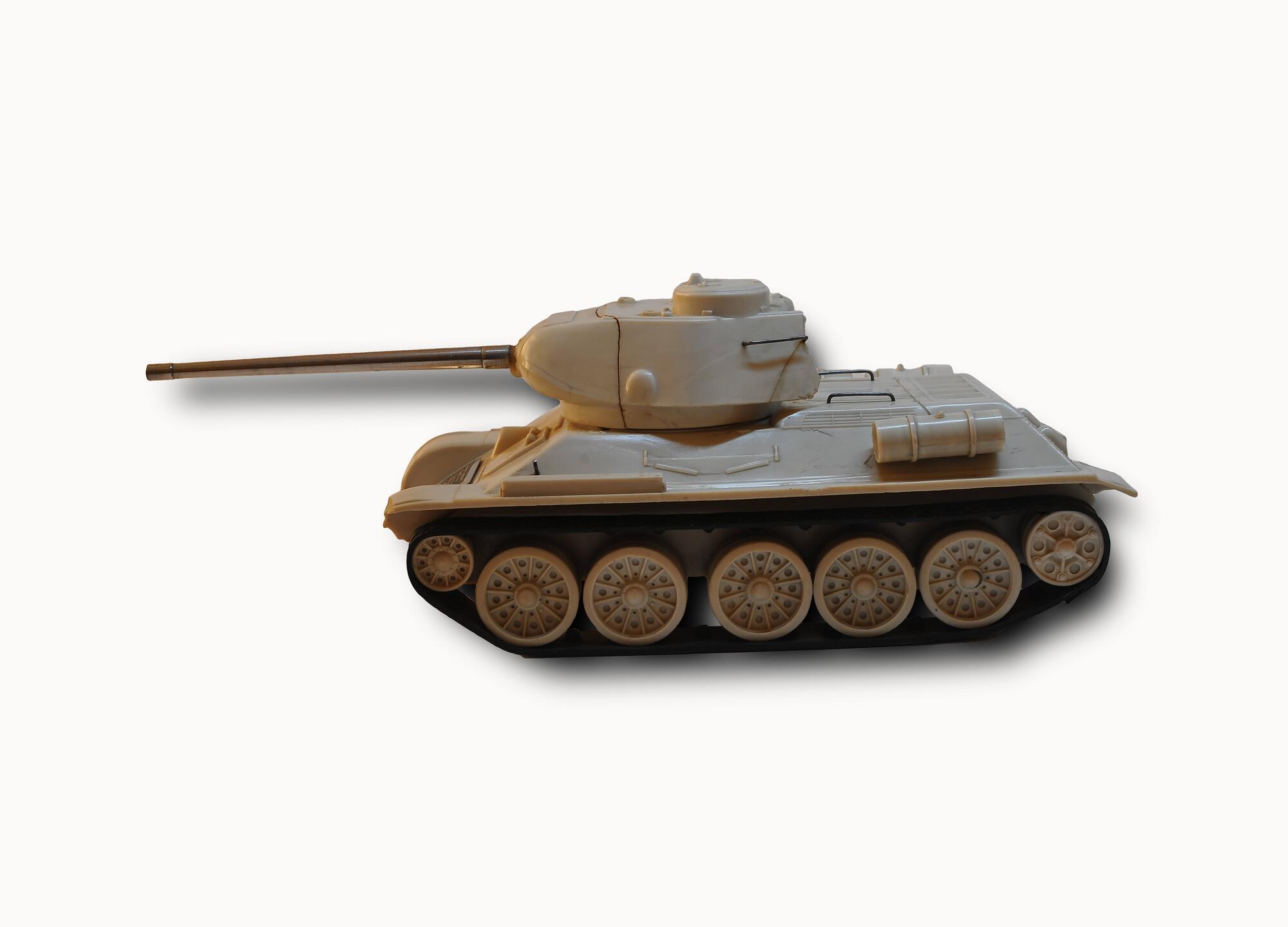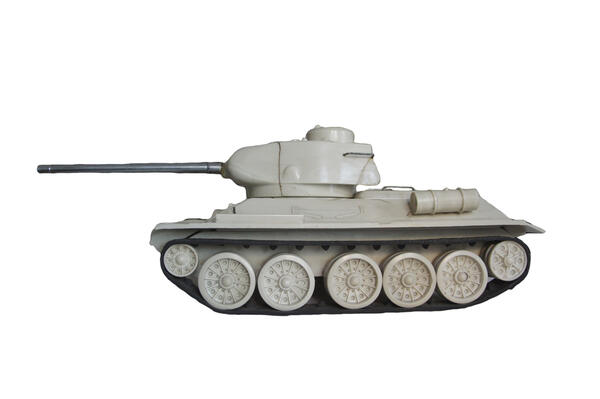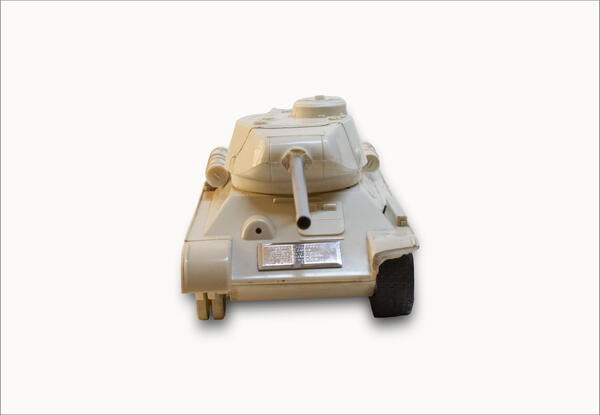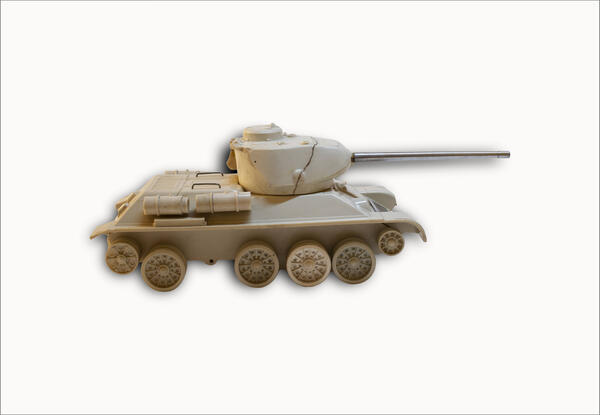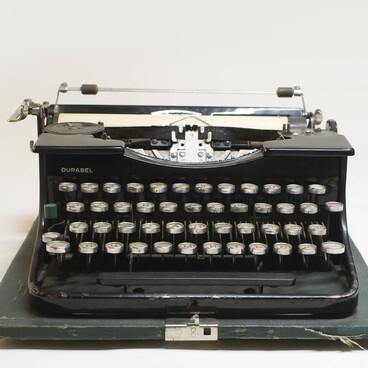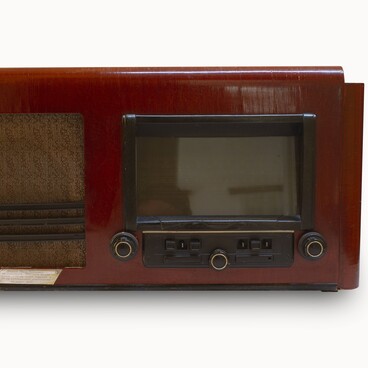The model of the T-34 tank is made of light-colored carbolite, a heat-resistant resin. The turret of the miniature replica is removable, the tracks have a rubber cover. Under the turret is a stamp “NKHP 767 z-d”, which means the Nizhny Tagil Plant “Uralchimplast” (Urals Chemical Company).
This model was presented to Pavel Petrovich Bazhov for his 70th birthday, in January 1949, by a delegation of the Stalin UralVagonZavod, who arrived from Nizhny Tagil. But it was not just about the jubilee — the gift had an additional significance.
In March 1943, for the “Malachite Box” collection, the Ural writer was awarded the Stalin Prize of the 2nd degree, which included a cash payment of 50,000 rubles. This event was widely celebrated in the Urals, and the writer received congratulations from all over the country, including from the front.
Pavel Petrovich gave the money and his award to Comintern Ural Tank Factory No. 183, which included the Nizhny Tagil plant and the evacuated metropolitan factories where the famous T-34 tanks were manufactured.
Such gestures were very popular in wartime: Soviet people of different ages and professions who remained in the rear collected money for the army, and many artists donated their income to the needs of the front. Heroes gave their orders and medals to financially support the Motherland in that challenging period.
The money was used to produce planes and tanks with special designations. For example, Aleksey Nikolayevich Tolstoy transferred the money from his literary prize to build the tank “Formidable” (“Grozny” in Russian), and the Soviet artists Kukryniksy, along with Sergey Vladimirovich Mikhalkov and Samuil Yakovlevich Marshak donated their money to produce the “Merciless” tank.
There is a legend that Bazhov’s prize money was also used to build a tank called “The Malachite Box”, and that as part of the Ural Volunteer Tank Corps, it reached Berlin. However, the facts do not confirm this story: no documents about the existence of this combat vehicle have been discovered. In addition, the cost of parts and construction of one T-34 was approximately 200,000 rubles, and Bazhov’s award could not have fully covered these costs.
This model was presented to Pavel Petrovich Bazhov for his 70th birthday, in January 1949, by a delegation of the Stalin UralVagonZavod, who arrived from Nizhny Tagil. But it was not just about the jubilee — the gift had an additional significance.
In March 1943, for the “Malachite Box” collection, the Ural writer was awarded the Stalin Prize of the 2nd degree, which included a cash payment of 50,000 rubles. This event was widely celebrated in the Urals, and the writer received congratulations from all over the country, including from the front.
Pavel Petrovich gave the money and his award to Comintern Ural Tank Factory No. 183, which included the Nizhny Tagil plant and the evacuated metropolitan factories where the famous T-34 tanks were manufactured.
Such gestures were very popular in wartime: Soviet people of different ages and professions who remained in the rear collected money for the army, and many artists donated their income to the needs of the front. Heroes gave their orders and medals to financially support the Motherland in that challenging period.
The money was used to produce planes and tanks with special designations. For example, Aleksey Nikolayevich Tolstoy transferred the money from his literary prize to build the tank “Formidable” (“Grozny” in Russian), and the Soviet artists Kukryniksy, along with Sergey Vladimirovich Mikhalkov and Samuil Yakovlevich Marshak donated their money to produce the “Merciless” tank.
There is a legend that Bazhov’s prize money was also used to build a tank called “The Malachite Box”, and that as part of the Ural Volunteer Tank Corps, it reached Berlin. However, the facts do not confirm this story: no documents about the existence of this combat vehicle have been discovered. In addition, the cost of parts and construction of one T-34 was approximately 200,000 rubles, and Bazhov’s award could not have fully covered these costs.
